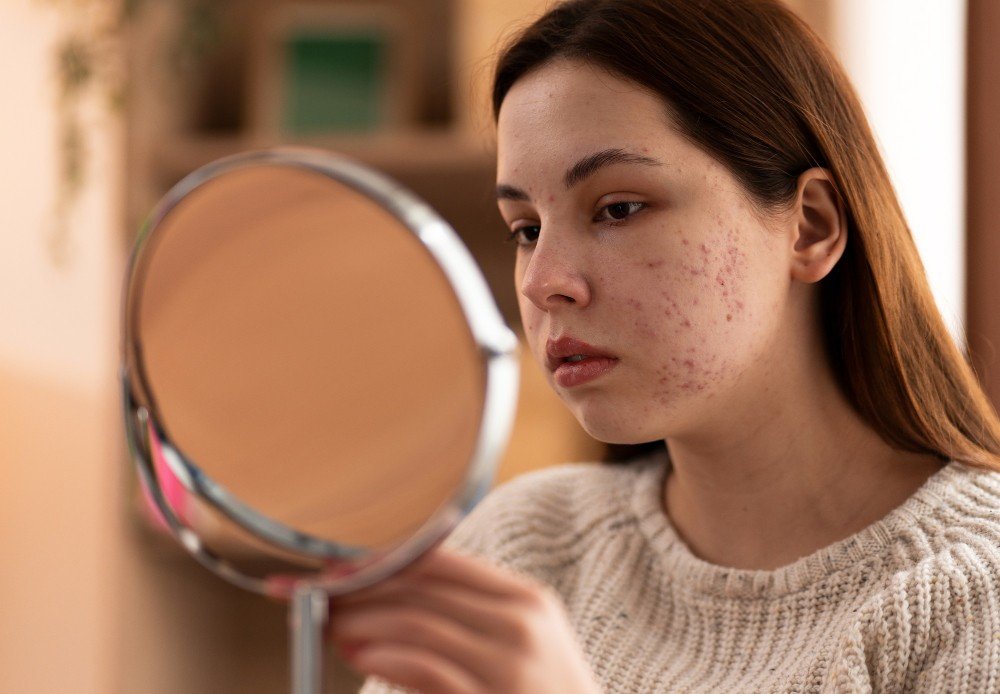Symptoms of Ringworm vs Nummular Eczema
Ringworm and Nummular Eczema are both skin conditions that can cause much discomfort for those dealing with them. There are some profound differences between the two conditions. However, that can help you determine which one you may be dealing with if you suspect either one of these infections. This article will look at the symptoms of nummular eczema vs ringworm to help you better understand each condition’s appearance and how they differ.
Symptoms of Ringworm
One of ringworms’ most common and clearly visible symptoms is rash or red skin lesions that appear in patterns similar to a ring or circle. These rashes often have raised borders and may be itchy or painful. Ringworm can also cause skin damage, such as hair loss, scarring, and skin discolouration.
Symptoms of nummular eczema
In contrast to ringworm, nummular eczema is typically characterised by itchy, dry patches of skin. When viewed from above, these patches often have an oval shape or a coin-like appearance. Nummular eczema may also produce small blisters filled with fluid or pus. Additionally, those who suffer from nummular eczema may notice that their skin becomes rough and scaly in some areas due to excessive scratching and rubbing.
What are the differences?
While both ringworm and nummular eczema can cause significant discomfort for those affected by them, there are some essential differences between the two conditions. For example, ringworm tends to be more contagious than nummular eczema and is often spread through contact with an infected person or animal.
In contrast, nummular eczema is typically caused by allergens such as pet dander, dust mites, or certain chemicals in skincare products. However, you can manage ringworm and nummular eczema with medication and lifestyle changes. If you suspect that you may have either of these skin conditions, you must consult your doctor for a diagnosis and treatment plan that works best for you.
Treatment for Ringworm
There are many different treatment options available for those dealing with ringworm. Depending on the severity of your skin infection, your doctor may recommend topical creams or ointments containing antifungal medications such as miconazole and clotrimazole. In more severe cases, doctors may prescribe oral antifungal medications to help speed up recovery time and prevent the spread of infection.
Treatment for nummular eczema
The treatment for nummular eczema can also vary depending on the severity of your condition. Common treatments include over-the-counter moisturizers and antihistamines to help relieve itching and prescription-strength corticosteroid creams or ointments to soothe red and irritated skin.
Additionally, your doctor may recommend avoiding allergens such as harsh soaps and detergents, which can irritate sensitive skin and trigger flare-ups. Overall health, many effective treatment options are available for both ringworm and nummular eczema, and it is essential to work with your doctor to find a plan that works best for you.
How to avoid getting these skin conditions
You can take a few steps to help prevent the development of ringworm or nummular eczema. For example, regularly washing your hands and showering after being in contact with infected people or animals may help reduce your risk of acquiring these skin conditions. Additionally, gentle soaps and moisturizing can help keep your skin healthy and hydrated, reducing your chances of infection.
Overall, it is essential to pay attention to any changes in your skin and consult a doctor if you suspect that you may have either ringworm or nummular eczema. With early detection and proper treatment, these conditions can be managed effectively and kept under control.
Alternative treatments for these skin conditions?
Several alternative treatments may help to manage symptoms of ringworm and nummular eczema. Some options include using essential oils such as tea tree oil, neem oil, or lavender oil to soothe irritated skin and relieve itching; applying cool compresses or ice packs to affected areas; taking probiotics or other supplements for immune support, and making dietary changes such as avoiding foods that can trigger allergies or intolerances. Ultimately, the best approach to managing these conditions will vary depending on your individual needs and preferences. Work closely with your doctor to find the right treatment plan.
What are the risks of leaving these skin conditions treated?
There are several risks of leaving ringworm and nummular eczema untreated, including increased discomfort and irritation, the potential for further skin inflammation or infection, and an increased risk of complications. For example, long-term periods of itchiness and scratching can damage your skin, making it more prone to breakage or scarring. Left untreated, untreated infections may lead to other health conditions, such as bacterial skin disease or even blood poisoning.
As such, seeking prompt treatment for these skin conditions is essential to manage symptoms effectively and prevent severe complications. With early diagnosis and proper care, you can have healthy skin and reduce your risk of experiencing adverse effects from these conditions.
Conclusion
If you are experiencing ringworm or nummular eczema symptoms, it is crucial to seek prompt treatment from your doctor. You can manage these conditions effectively with various treatments, including antifungal medications, topical creams and ointments, and lifestyle changes such as avoiding allergens and maintaining a healthy diet. You can keep your skin healthy and avoid serious complications from these conditions with proper care.
Share this content:














Post Comment